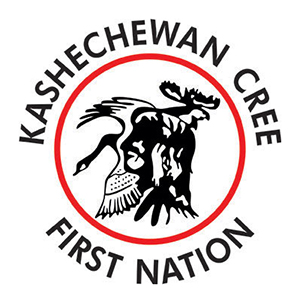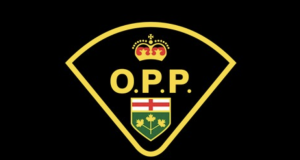Kashechewan, Ontario.
 A humanitarian crisis is quickly overwhelming the remote community of Kashechewan, a First Nation on the coast of James Bay in Northern Ontario. COVID-19 is sweeping through the community of 1800 members. Community leaders and workers who are not in isolation are quickly becoming exhausted and burnt out. Chief Leo Friday and his Councillors are working 13 hour days, trying to support the sick and those who are in isolation, by doing wellness checks and delivering a limited supply of food, sanitation supplies and PPE. A similar story is unfolding in other remote communities along James Bay.
A humanitarian crisis is quickly overwhelming the remote community of Kashechewan, a First Nation on the coast of James Bay in Northern Ontario. COVID-19 is sweeping through the community of 1800 members. Community leaders and workers who are not in isolation are quickly becoming exhausted and burnt out. Chief Leo Friday and his Councillors are working 13 hour days, trying to support the sick and those who are in isolation, by doing wellness checks and delivering a limited supply of food, sanitation supplies and PPE. A similar story is unfolding in other remote communities along James Bay.
At last count, 114 people in Kashechewan have tested positive for COVID-19 and many more are in isolation awaiting results of tests. Of those, at least 77 of the positive cases are young people aged 17 or under. Most adults have been previously vaccinated, but now the COVID-19 is rapidly spreading through the younger population. Children as young as 4 months have been infected. As of last night, eight community members had been airlifted to southern Ontario hospitals for treatment.
“It didn’t have to be this way,” said an exhausted Chief. “For years we have been asking for help to address our housing and infrastructure needs. We have some 3-bedroom homes with 18 people living in them and others with four family groups. We are in the middle of an opioid addiction crises as well. We are told time and again by the government to submit proposals for support, but the proposals all have been rejected or delayed.”
The Chief asks “how can people self-isolate in these conditions? With overcrowded homes and many young adults with no housing at all that depend on the kindness of family and friends for shelter, but they have nowhere to go when homes are isolating.”
The community is putting up tents to house people who need to isolate on the high school grounds, but these people will still need to share washroom and cooking facilities, leading to more spread of the virus. The Council has requested Canadian military support to erect a field hospital, bring in needed supplies and build isolation shelters in the community, but so far, the Government Ministers in Ottawa and Toronto who need to approve that support have not agreed. A teleconference yesterday with Marc Miller, Minister of Indigenous Services, left the Chief without any firm commitments of concrete help.
Mushkegowuk Council’s Manager of Emergency Services, Wilbert Wesley, is trying to coordinate support for all the James Bay coastal communities in Ontario. “We have started to receive offers of help from organizations like the Canadian Red Cross, but it takes time to get those workers in place. We need to ensure that they are fully vaccinated, tested and have a place to stay.” In addition, he says that the only large cargo plane in the James Bay area is scheduled for a four-week maintenance overhaul. Leaving the remote communities dependant on small planes that will not be able to deliver larger shipment of equipment or supplies.
Chief Friday simply asks that his community and others in the Far North of Ontario not be forgotten as the rest of Canada looks forward to re-opening. He winds up by saying “We need help, but we also need to feel that Canada has not forgotten us.”
SOURCE – Kaschechewan First Nation
- Don’t Stop Now:How immigration & temporary residency have reversed population decline in Northern Ontario - February 14, 2026
- SSM Police – Additional Charges Laid in Ongoing Sexual Assault Investigation - February 14, 2026
- Canada invests over $75,000 to support global maple syrup conference in Northern Ontario - February 14, 2026
 Wawa-news.com Local and Regional News
Wawa-news.com Local and Regional News

” In 1905, the Fort Albany First Nation, a Cree First Nation that resided at a Hudson’s Bay trading post, signed Ontario’s Treaty No. 9, which established its lands around where the Albany River met James Bay. It was divided into two groups that shared the same leadership: one group was largely Roman Catholic and the other Anglican.
In 1957, officials forcibly relocated the Anglican group to the northern shoreline of the river, despite it being flood prone, as journalist Alexandra Shimo described in her book “Invisible North.” The community chose the name Keeschewan, which is Cree for “where the water flows fast.” However, officials misspelled the name as Kashechewan.”
I DO NOT UNDERSTAND why the relocation to higher ground has not happened. I also do not understand why the armed forces are not assisting and supporting the COVID-19 victims as they did in the province of Ontario when medical support was not enough.